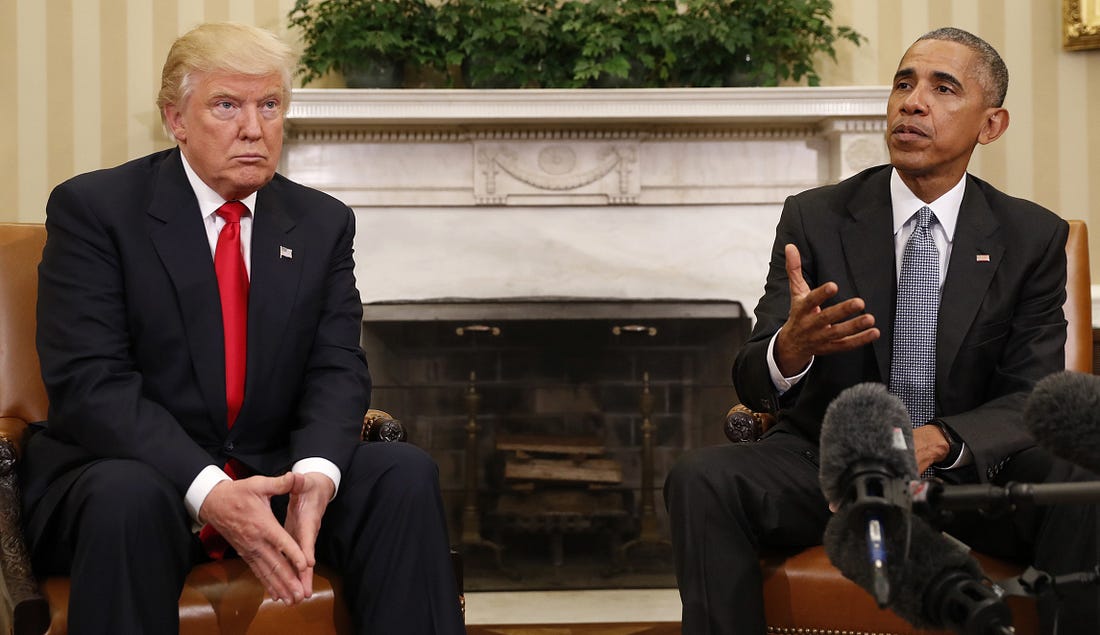Democrats' Turn to Break the Rules
After Obama won, the Republicans abandoned democracy. Will the Democrats?

I can’t think of more pointless or more infuriating topic.
A restaurant politely refused service to Press Secretary Sarah Huckabee Sanders this weekend due to her complicity in the president’s sadist border policy (since reversed). Sanders tweeted about the incident, sparking a mind-numbing day of endless pedantry about the need for everyone to get along in these polarized times.
It was as if we forgot the administration Sanders speaks for had confiscated babies from immigrant mothers seeking asylum. It was as if the feelings of the powerful were more important than the feelings of kids in detention camps. It was as if the comfort of the comfortable had a privileged place over the affliction of the afflicted.
Journalists should care about civility out of professional self-interest. Their job is to inform citizens so they can engage in a democratic process of reasoned debate over the common good. But for civility to have meaning beyond etiquette, parties must recognize the legitimacy of others. Civility presumes that everyone agrees we’re all in this together and that everyone will act in the interest of the common good.
That’s the problem.
Not everyone sees that we’re all in this together.
President Donald Trump proved this point even as pedants clucked their tongues over civility’s nadir. After a video went viral of US Rep. Maxine Waters encouraging people to publicly shame and shun administration officials, Trump said:

Congresswoman Maxine Waters, an extraordinarily low IQ person, has become, together with Nancy Pelosi, the Face of the Democrat Party. She has just called for harm to supporters, of which there are many, of the Make America Great Again movement. Be careful what you wish for Max!
June 25, 2018The last time the political parties agreed to sublimate their respective interests in the name of the common good was the time of the New Deal when the federal government expanded the American franchise to include those previously blocked out of it.
But such civility came at a price—as long as everyone was white. That consensus began to break down in the 1960s, with the Voting Rights Act and the end of Jim Crow, but conservatives accepted the New Deal’s basic structure while carving out pieces in the name of state’s rights, limited government and fiscal restraint.
All bets were off after Barack Obama became the first African-American president. It was one thing to expand democracy on the backs of white taxpayers. It was another for a black man to reside at the heart of American power. That was beyond the pale.
When Orin Kerr said the following, he was trying to describe what Democrats are feeling. But he could just as well have been talking about Republicans in 2008. He said: “Few things are more corrosive in politics than the conviction that you have been wronged so much that you're justified in breaking all the rules to get even.”
After Obama’s election, Republican voters, fearing the loss of racial status and privilege that might come with demographic change, went all-in behind an agenda that did everything possible to sabotage Obama, even if that meant bringing the country to the brink of fiscal collapse and stealing a US Supreme Court seat.
Democrats have had doubts about democracy since the high court violated the people’s sovereignty by deciding the 2000 presidency. That doubt grew deeper as the US went to war with the wrong country, as corruption flourished, as too-big-to-fail banks never faced justice, and as normal working Americans got screwed.
Obama’s victory relieved those doubts. But now, given that Trump’s presidency is a repudiation of what appeared to be an expanded democracy for all, those doubts are back. With the implementation of a policy inflicting harm on children for the sake of inflicting harm on children, doubts about democracy may be here to stay.
Bloomberg’s Francis Wilkinson argued last week that Democrats are too attached to democracy to give up on it. I trust he’s right. But I believe something else is right.
The time for civility is over.
It’s time to break the rules.
